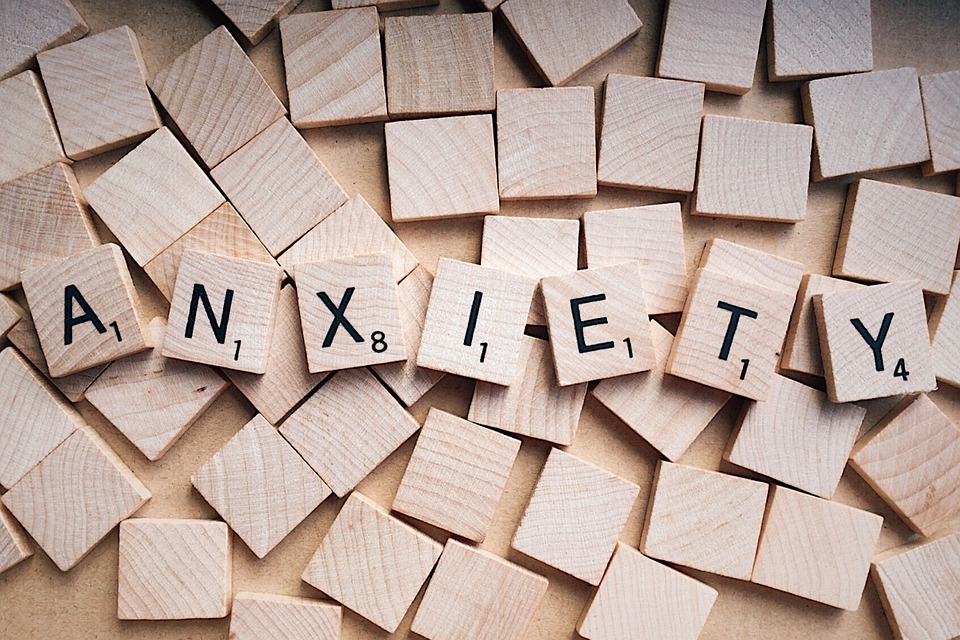Do you recognise any of the following?
- Worrying, obsessive thoughts that are running away with me
- Worrying excessively about small details
- I can’t sleep I’m so stressed
- My brain is in ‘ Over Drive’
- Why am I feeling so tense?
- What if ……………..
- Why did I make that stupid mistake?
- Don’t come near me, I’m freaking out
- I’m so tense my body aches all over
Such ways of thinking and feeling are hard to bear at times, and even if you’ve never felt like any of these you may be familiar with some of them, perhaps from someone you know. I thought we could focus on anxiety for the May blog because it’s part of the issue being discussed in Mental Health Awareness Week. It’s a time to raise awareness and reduce the stigma around mental health. Also, to start important conversations about our emotional well-being and to remind ourselves that mental health is just as important as physical health. I don’t like the word ‘mental’, it has negative implications when used in our society, for instance, as a child I recall people saying ‘you’re mental’ in a derogatory fashion. Of course, as grown-ups, we know that this is not the way the term is meant to be used, but it still makes me shiver slightly. I prefer to talk about emotional well-being or wholeness of mind, or similar. I’m focussing then on emotional wellness and its relationship with anxiety.

It’s interesting to consider what anxiety is, because many of us can describe our anxious feelings or thoughts but can’t fully explain it. I like to think of it like this: it’s when we start getting jittery because we’re not sure what an outcome might be, and I’ve noticed a tendency to get more anxious when I’m tired, especially when there are a lot of demanding situations in my life. I think when feeling unwell we are more likely to worry, possibly because we can’t control our state of health, even though we may wish to. I’ve noticed I like to walk around life with the ‘illusion of control’ as I call it, basically, I believe I can control a lot that’s going on, and the reality is rather different. For example, I’ve developed a number of complex health conditions recently; a few years back I couldn’t have imagined myself taking the number and type of medications that I’m on currently. I wonder how you’re feeling, whether you feel that life’s within your control, or whether things feel like they’re spinning out of control in any way?
I think it’s when we feel a lack of control sometimes that our stress and anxiety levels start to increase. I’ve also noticed that I’ve almost believed at times that by me stressing the ‘bad thing won’t happen’. A number of years ago somebody close to me became seriously ill; I found myself stressing an inordinate amount and I started to realise it was getting in the way of me supporting and being loving to that person. So, I paused and gave myself a bit of a ‘talking to’; it went something like this.
‘Rachel, what will your worrying actually achieve for person X? Will it help them get better?’ The answer, of course, is a resounding NO!

I have since needed to give myself that pep talk on a number of occasions about different situations in my life, including a time when I felt insecure at work due to various circumstances. I don’t know about you, but sometimes the night before an event I’ve been really wound up, and then when I actually start the event the next day and I’ve gotten into things feel so much better. From time to time I remind myself of that fact.
There are so many ways of dealing with anxiety that it’s impossible to list them all, but here are just a few. I’ve tried to include things that might be a bit different from the ‘usual’. Of course, it’s always possible you thought of them all already anyway!
- Asking the questions
- What’s the point of me being anxious?
- What’s it doing for me today, this anxiety? (nothing???)
- I feel really stressed, I wonder why?
- Sitting quietly and taking 5 minutes of downtime
- Listening to a beautiful piece of music/doing a pleasant craft activity
- Letting yourself cry if need be to grieve or if you are sad
- Phoning a friend/relative
- Taking a nap
- Doing some fun exercise
- Taking a bath or shower
- Using a fragrance oil product, such as a fragrant candle, a wax melt or other similar fragrant ‘experience’
- Closing your eyes and picturing yourself in a safe place

It’s important to remember that seeking help for emotional health concerns is a sign of strength, not weakness. There are many resources available, including therapy, support groups, and hotlines. It’s never too late to prioritise your mental health and take steps towards healing.
There’s some very helpful information about anxiety on the mental health awareness website and I’m going to post some of it below as well as additional sources of help.
Treatment and support for anxiety – Mind
Resources for Mental Health Awareness Week 2023 | Mental Health Foundation
Anxiety and panic attacks – NHS (www.nhs.uk)
Mental Health Awareness Week – Mind
Samaritans | Every life lost to suicide is a tragedy | Here to listen

